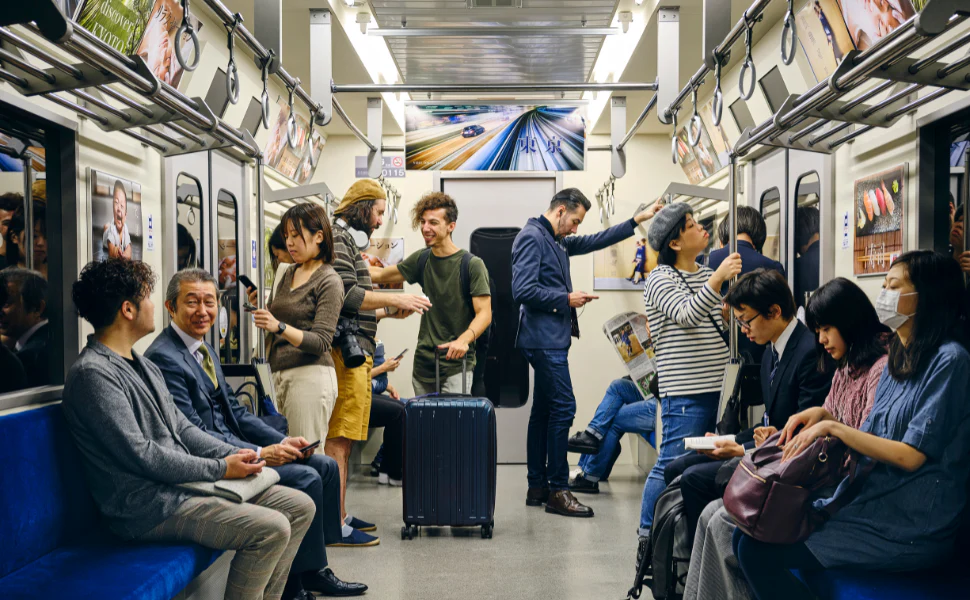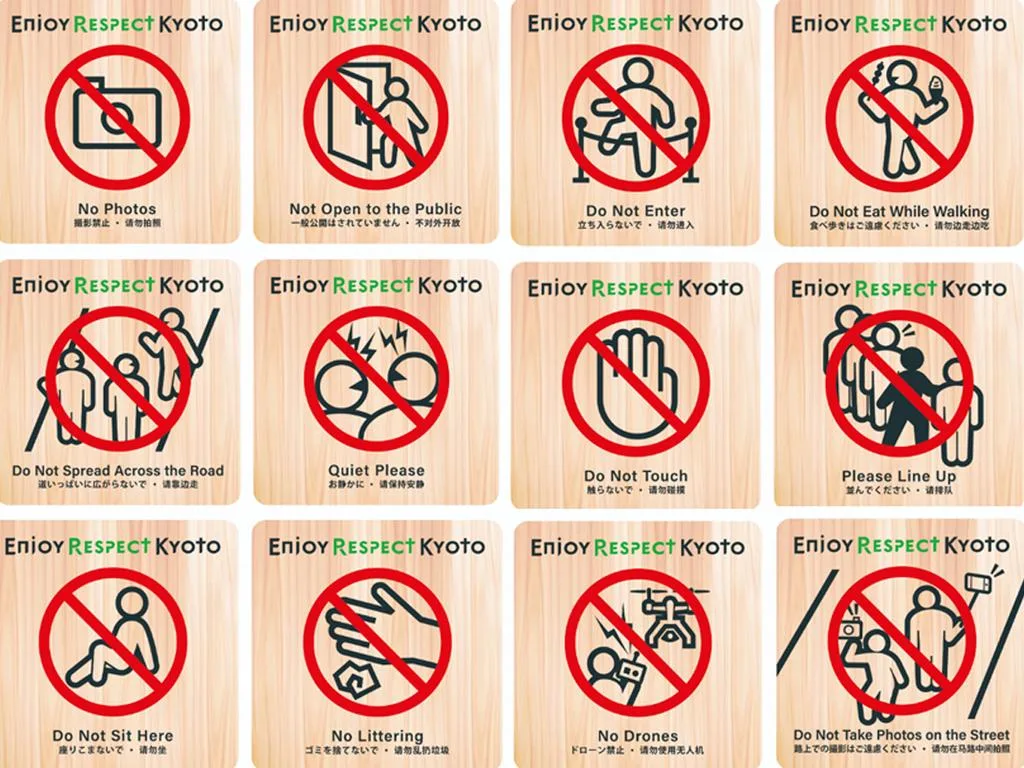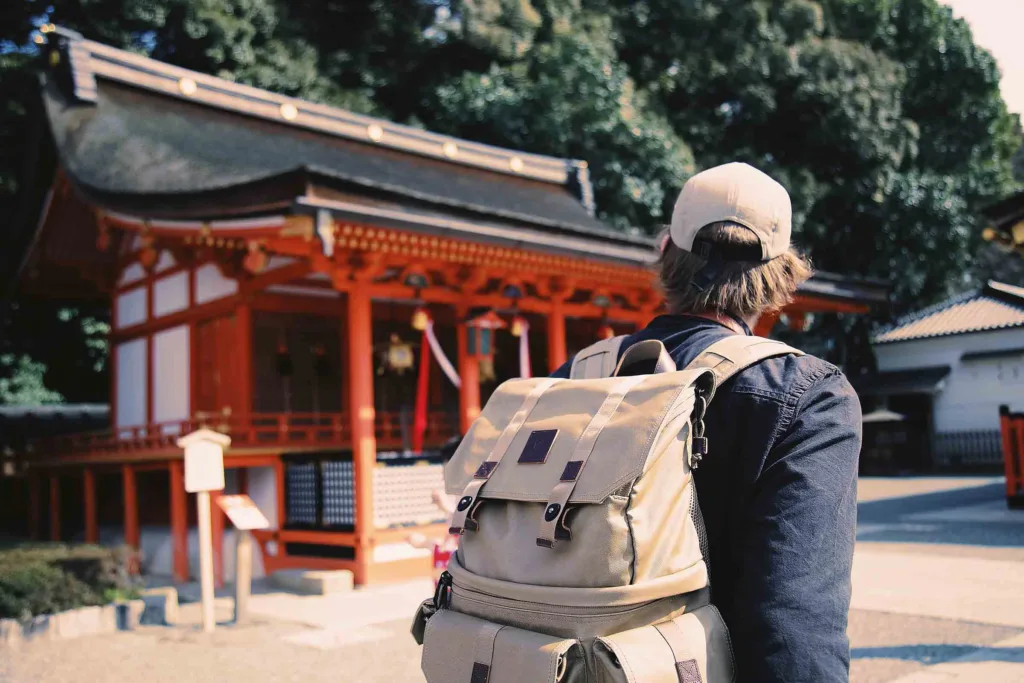As a travel writer who loves exploring Japan—and learning along the way, I’ve noticed one clear truth: Japan’s beauty lies in its culture, customs, and kindness. So, when tourists behave unconsciously, they unintentionally undermine that beauty. Moreover, failing to respect local values creates tension between visitors and residents. In this article, I’ll share real-life examples of tourist missteps, explain why they matter, and show how respectful travel enhances your experience.
1. Loud Voices on Trains
Firstly, speaking loudly on trains is by far one of the most irritating behaviors for locals. According to a Japan Private Railway Association survey, 51.8% of complaints cited noisy conversation or rowdy behavior on local trains. For instance, travelers chatting with large groups often disrupt the calm atmosphere where Japanese commuters usually read or sleep quietly. In one Reddit comment observers noted:
“Loud conversations/being rowdy on the train—most locals find it rude”.
Therefore, even if you’re excited or joking with friends, please whisper or use headphones and avoid phone calls entirely on local lines.
2. Eating or Drinking on Local Trains

Next, eating meals or smelly snacks in commuter trains also ranks high on the annoyance list. Though drinking quietly is sometimes tolerated, especially on bullet trains, most locals expect you to avoid audible chewing, food smells, or leaving wrappers around. For instance, opening a Mos Burger inside the train carriage would certainly draw disapproving looks. Instead, eat on platforms or wait until you board longer distance trains.
3. Poor Luggage Etiquette
Also, large rolling suitcases and backpacks often block aisles or bump into seated riders. In fact, 37.1% of complaints cited improper luggage handling as a major nuisance. One traveler shared how tourists would leave bulging backpacks at their feet and stand square in doorways, making boarding difficult for locals. So, if you carry big bags, move further into the car or send your luggage ahead by delivery service.
4. Blocking Doors & Priority Seating
Furthermore, many tourists stand in front of train doors or ignore the line culture when boarding and alighting. As locals emphasized, blocking doorways or cutting the queue disrupts Japan’s smooth flow in stations. Similarly, sitting in priority seats intended for elderly or pregnant passengers, without offering to move, feels insensitive. Instead, always observe platform markers, queue politely, and yield seats when needed.
5. Harassment & Disrespect Toward Geisha

Beyond trains, some tourists even harass geisha, behaviors driven by ignorance. Reports mention a Russian tourist throwing money and room key at a geisha, treating her more like entertainment than a respected cultural performer. In response, geishas began taking self-defense classes to protect themselves. In other words, ignoring cultural sensitivities can lead to emotional and physical harm. Always ask permission before photographing and treat geisha with dignity.
Respecting Culture Enhances Your Experience
Admittedly, many Japanese people actually welcome tourists. According to cultural insights, approximately 75% of locals see foreign visitors as positive cultural exchange. But at the same time, they expect visitors to learn local norms and act mindfully. Otherwise, the innocence of kindness gets strained under overtourism, especially in crowded areas like Kyoto or Mount Fuji
Practical Ways to Respect Japanese Customs
- Observe and mimic locals: Watch queue lines, volume level, luggage placement, and follow suit
- Avoid strong perfume in restaurants: In sushi or fine dining settings, strong scents can be seen as “smell harassment,” masking delicate flavors
- Don’t adjust dishes or meals: Asking to remove ingredients or change preparation can be interpreted as disrespect to the chef
Culture Comes First

To me, Japan’s charm isn’t just in temples or landscapes. It’s in the harmony, respect, and rituals that define everyday life. So, while you explore, remember you are a guest, not a conqueror. Your behavior reflects not only on yourself, but also on the idea of travel itself.
By following local customs and showing mindfulness, you help preserve the things that make Japan beautiful. When you slip off your shoes in a house, speak softly on the train, or walk in line quietly, it’s not just good manners. It’s an act of cultural gratitude. In turn, you receive more than photos. You’ll take away a heart-full of respect, connection, and meaningful memories.
If there’s something you want me to cover next, just let me know. Drop your comment below or follow me here on my Youtube about Japan!


